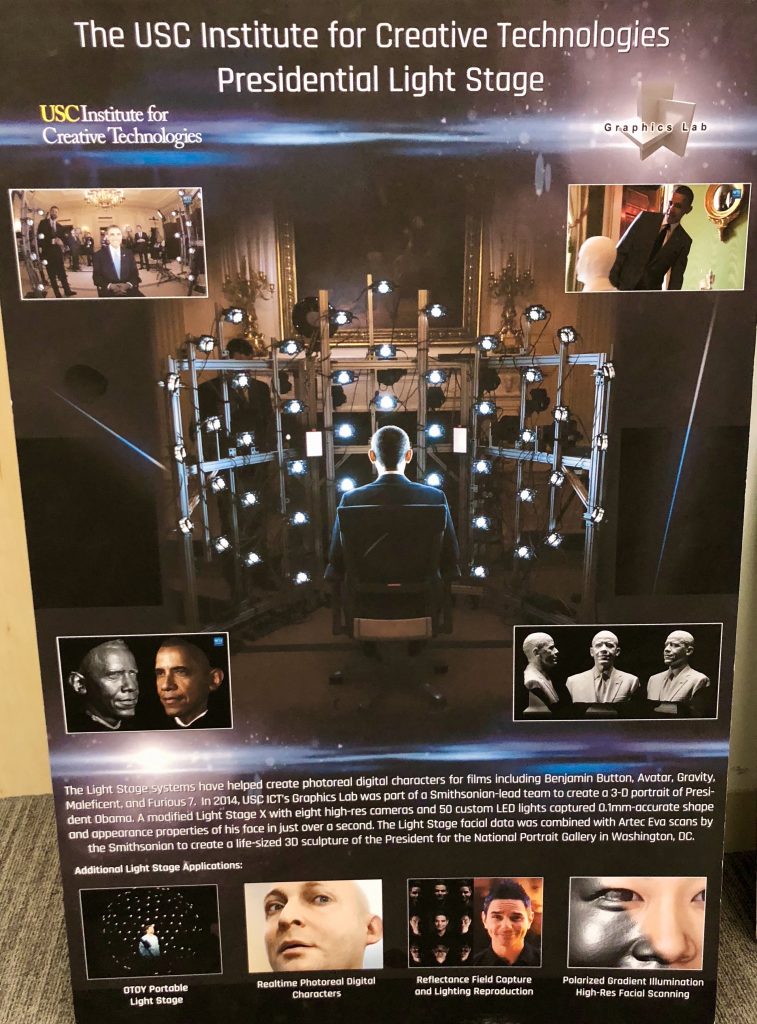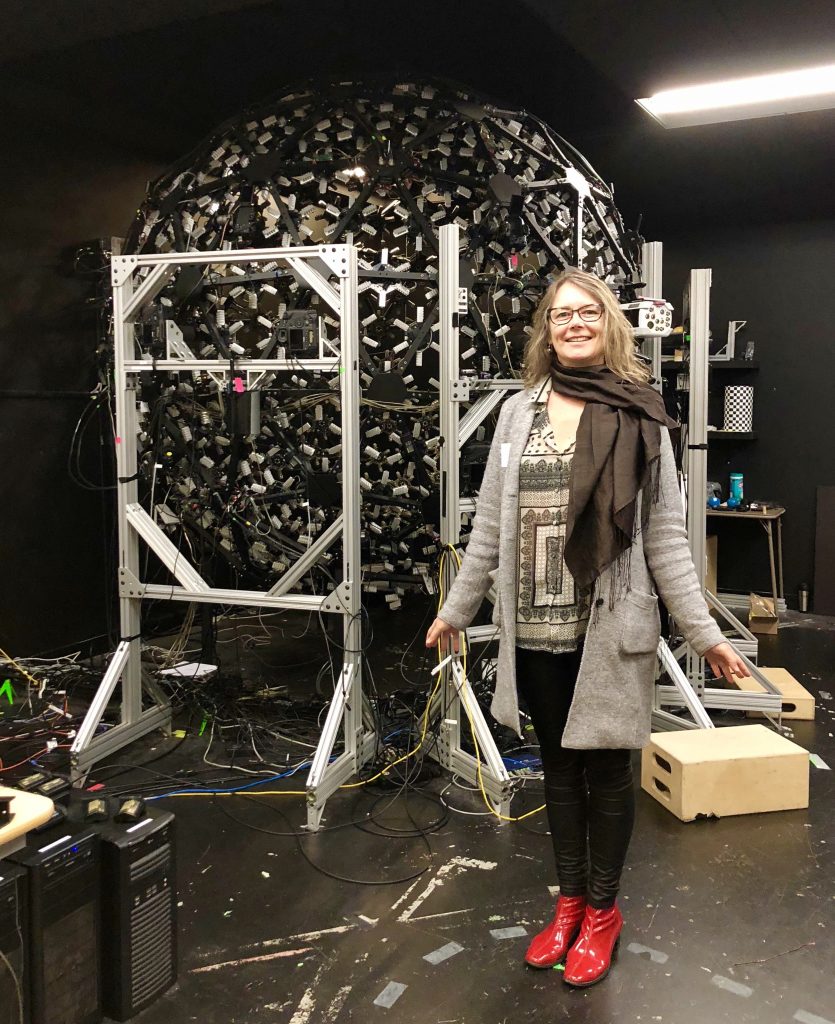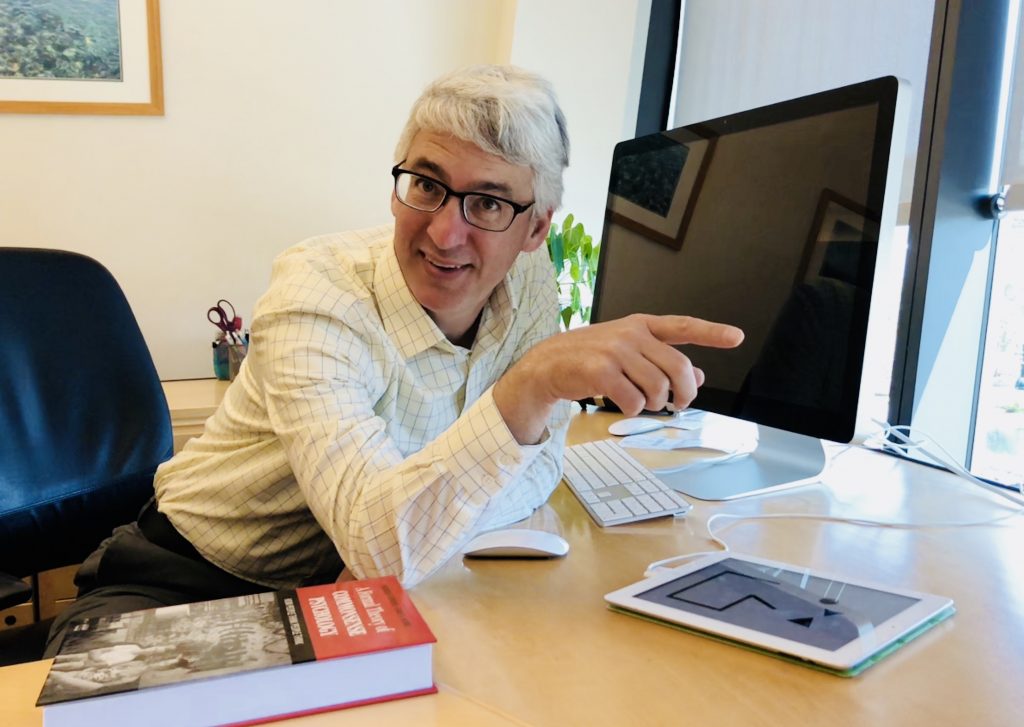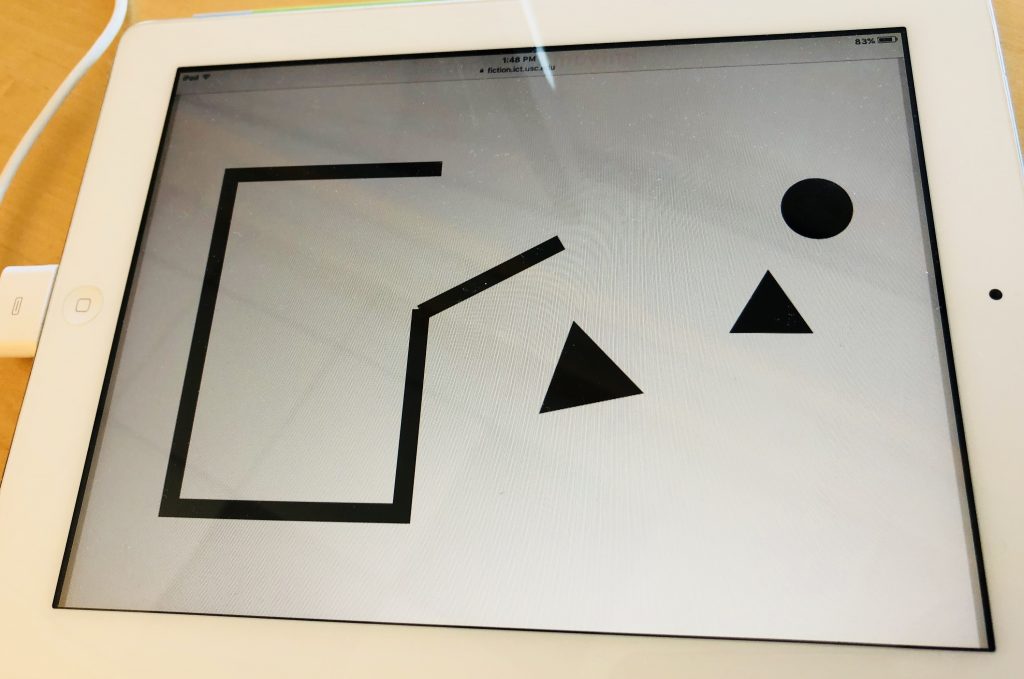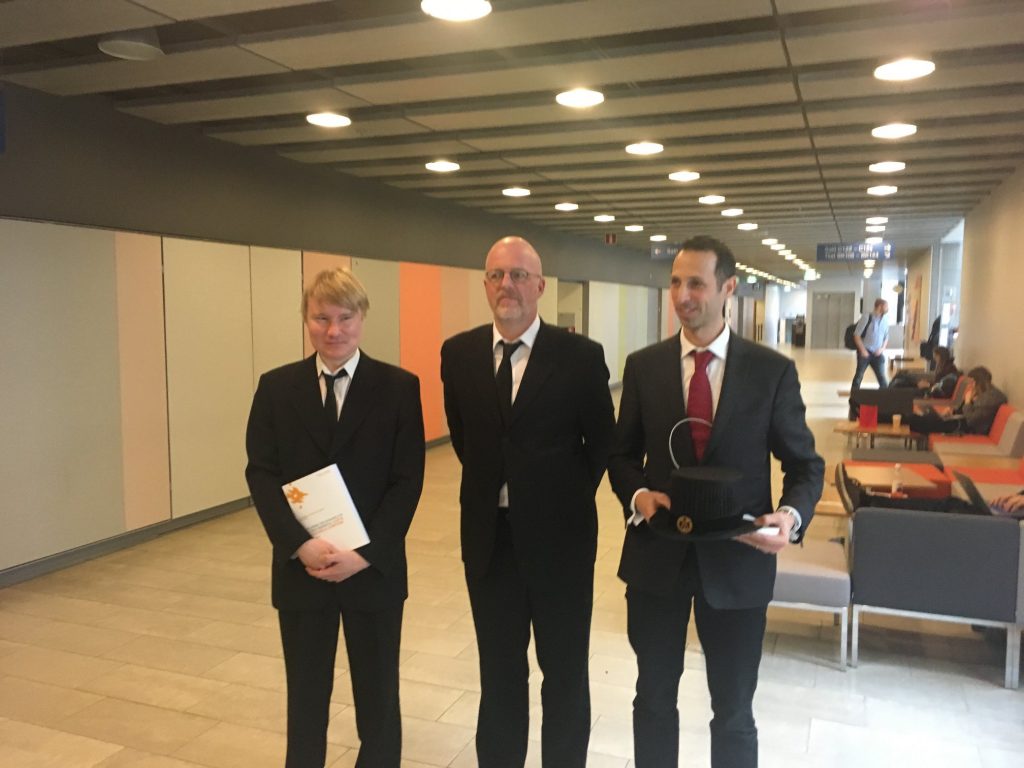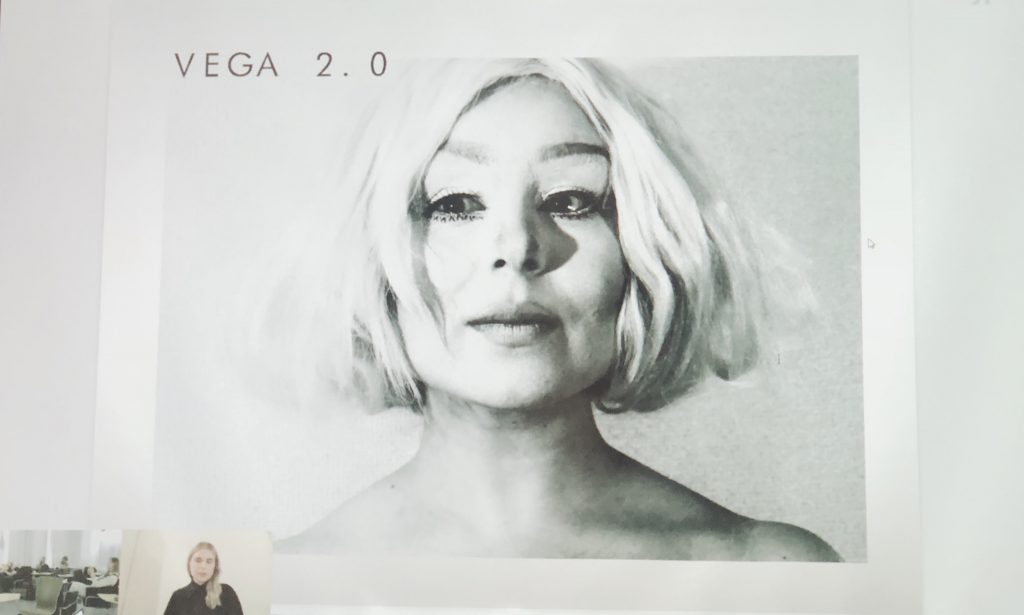
Examination of Johanna Lehto’s MA thesis “Robots and Poetics – Using narrative elements in human-robot interaction” for the Department of Media, programme New Media Design and Production on the 16th of May 2018.
As a writer and a designer, Johanna Lehto sets out to reflect upon the phenomenon of human-robot interaction through her own artistic work. To illustrate plot structure and narrative units of the interaction between a robot and human, she reflects upon how Aristotle’s dramatic principles. In her work, she applies Aristotelian drama structure to analyse a human-robot encounter as a dramatic event. Johanna made an interactive video installation in which she created a presentation of an AI character, Vega 2.0 (image). The installation was exhibited in Tokyo in Hakoniwa-exhibition on 22.-24.6.2017 and in Musashino Art University Open Campus -festival 10.-11.6.2017.
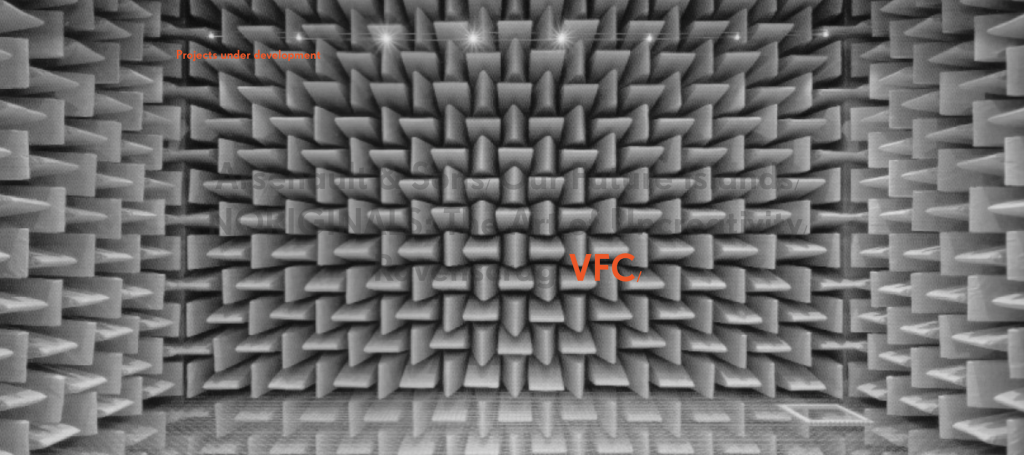
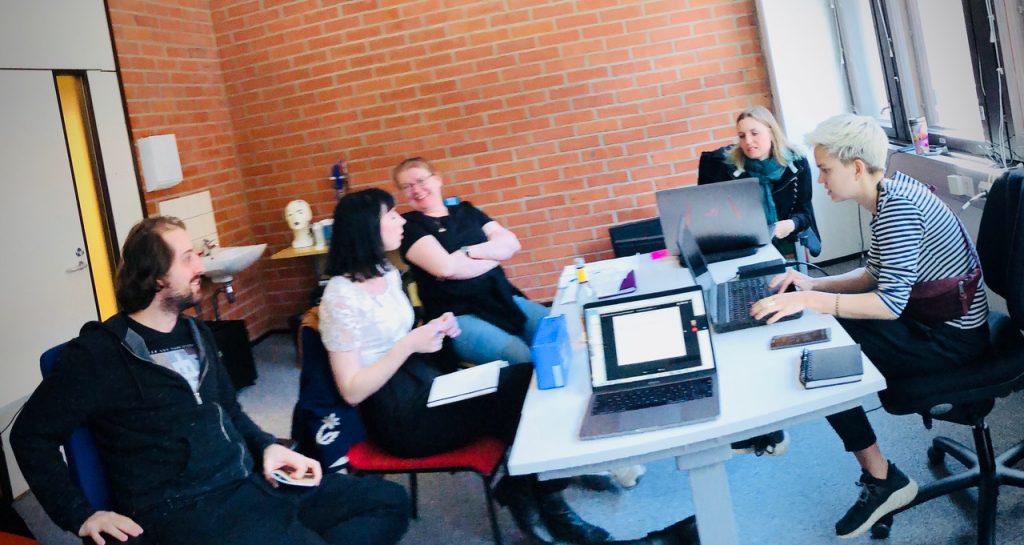
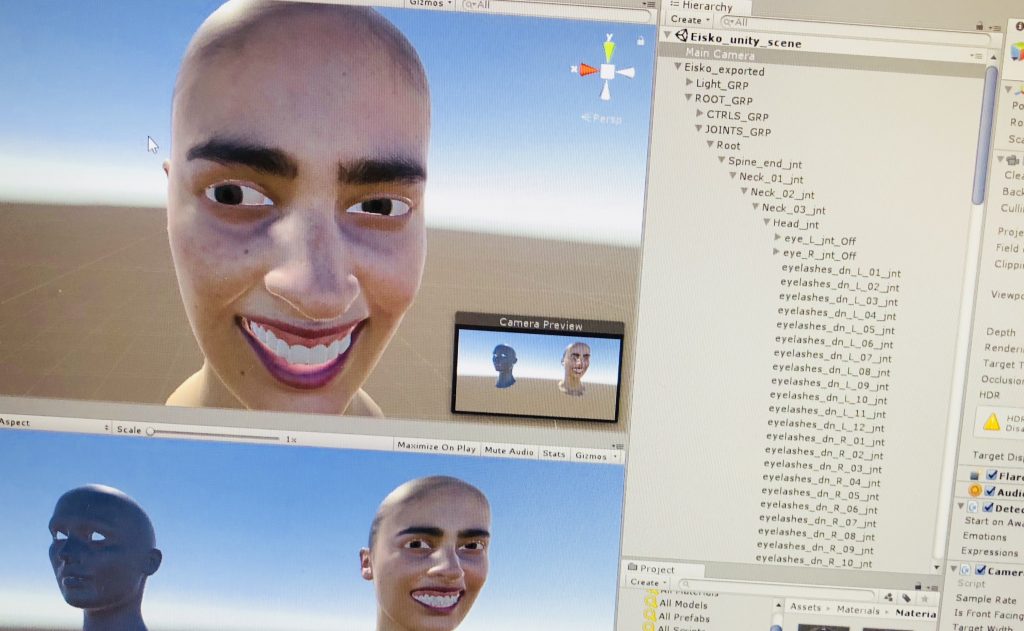 Testing facial expressions of the viewer driving the behavior of a screen character with the Louise’s Digital Double (under a Creative Commons Attribution Non-Commercial No Derivatives 4.0 license). see
Testing facial expressions of the viewer driving the behavior of a screen character with the Louise’s Digital Double (under a Creative Commons Attribution Non-Commercial No Derivatives 4.0 license). see 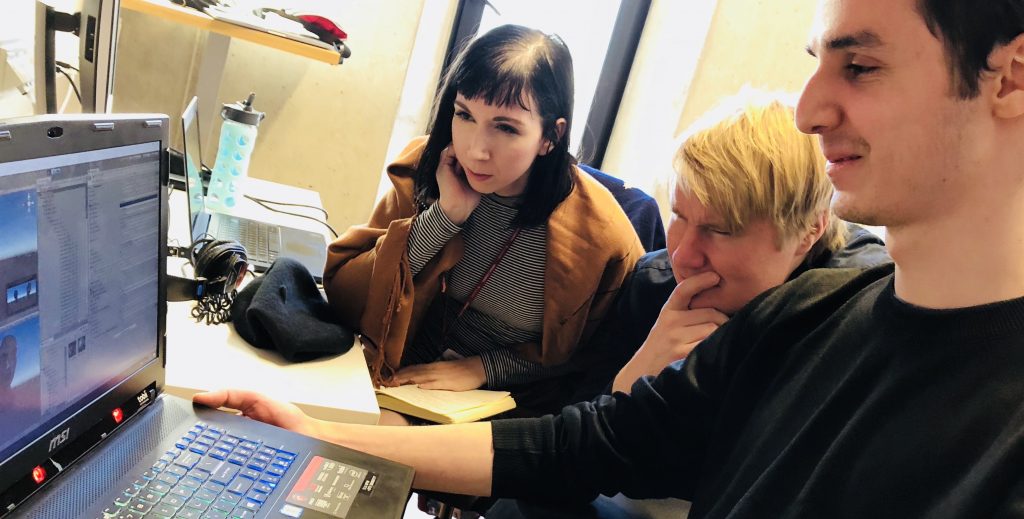 In the image Lynda Joy Gerry, Dr. Ilkka Kosunen and Turcu Gabriel, Erasmus exchange student from the
In the image Lynda Joy Gerry, Dr. Ilkka Kosunen and Turcu Gabriel, Erasmus exchange student from the 
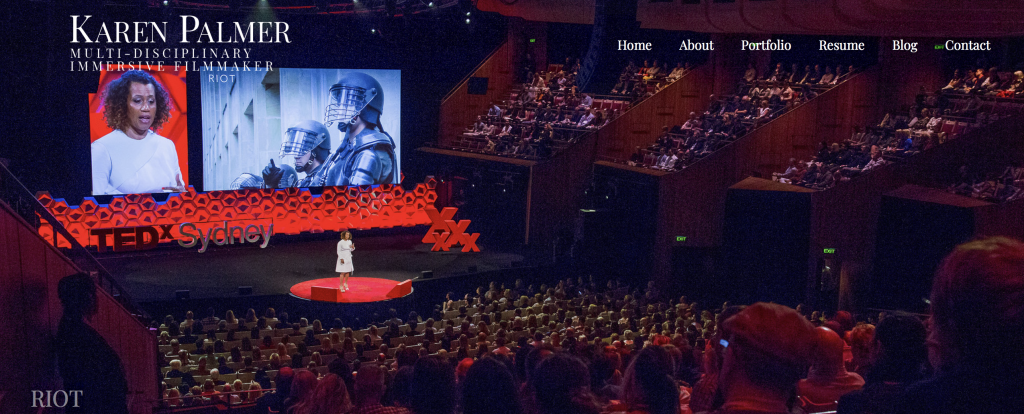 A visiting researcher
A visiting researcher 